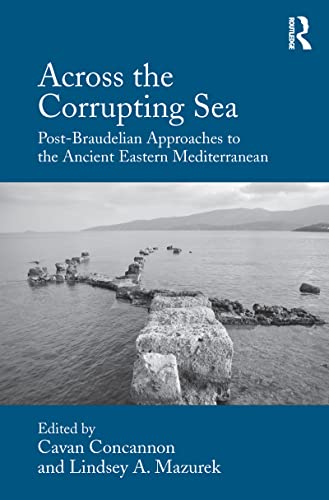

Most ebook files are in PDF format, so you can easily read them using various software such as Foxit Reader or directly on the Google Chrome browser.
Some ebook files are released by publishers in other formats such as .awz, .mobi, .epub, .fb2, etc. You may need to install specific software to read these formats on mobile/PC, such as Calibre.
Please read the tutorial at this link: https://ebookbell.com/faq
We offer FREE conversion to the popular formats you request; however, this may take some time. Therefore, right after payment, please email us, and we will try to provide the service as quickly as possible.
For some exceptional file formats or broken links (if any), please refrain from opening any disputes. Instead, email us first, and we will try to assist within a maximum of 6 hours.
EbookBell Team

4.8
84 reviewsAcross the Corrupting Sea: Post-Braudelian Approaches to the Ancient Eastern Mediterranean reframes current discussions of the Mediterranean world by rereading the past with new methodological approaches. The work asks readers to consider how future studies might write histories of the Mediterranean, moving from the larger pan-Mediterranean approaches of The Corrupting Sea towards locally-oriented case studies.
Spanning from the Archaic period to the early Middle Ages, contributors engage the pioneering studies of the Mediterranean by Fernand Braudel through the use of critical theory, GIS network analysis, and postcolonial cultural inquiries. Scholars from several time periods and disciplines rethink the Mediterranean as a geographic and cultural space shaped by human connectivity and follow the flow of ideas, ships, trade goods and pilgrims along the roads and seascapes that connected the Mediterranean across time and space.
The volume thus interrogates key concepts like cabotage, seascapes, deep time, social networks, and connectivity in the light of contemporary archaeological and theoretical advances in order to create new ways of writing more diverse histories of the ancient world that bring together local contexts, literary materials, and archaeological analysis.